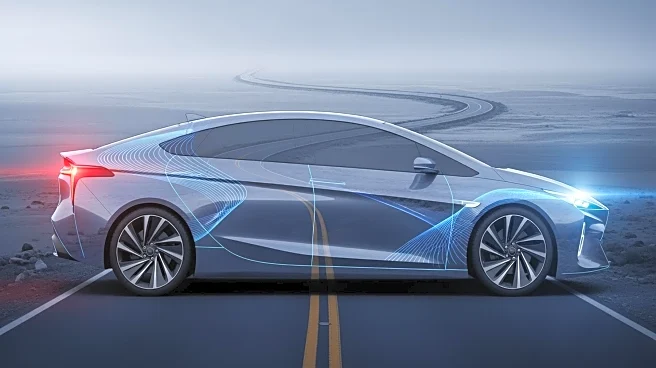What's Happening?
Nissan has announced that it will move up the U.S. launch of its second Rogue hybrid, the Rogue e-Power, to October 2026. Originally scheduled for the first half of 2027, this decision reflects Nissan's
strategic adjustment in response to evolving market conditions. The Rogue e-Power is part of Nissan's broader initiative to expand its hybrid offerings in the U.S. market. Additionally, Nissan is recalling over 173,000 vehicles due to a fuel pump issue, affecting models such as the Nissan NV200 and Chevrolet City Express. This recall is part of Nissan's ongoing efforts to address safety concerns and maintain consumer trust.
Why It's Important?
The accelerated launch of the Rogue hybrid is significant as it underscores Nissan's commitment to strengthening its presence in the hybrid vehicle market, which is increasingly competitive. This move could potentially enhance Nissan's market share in the U.S., where demand for hybrid and electric vehicles is growing. However, the recall of over 173,000 vehicles poses challenges for Nissan, as it must manage the logistics and costs associated with addressing the fuel pump issue. This situation highlights the importance of quality control and consumer safety in the automotive industry, which can impact brand reputation and customer loyalty.
What's Next?
Nissan's decision to expedite the Rogue hybrid launch may prompt other automakers to reassess their timelines for hybrid and electric vehicle releases. As the industry faces supply chain challenges, particularly with the phaseout of critical mineral tax credits, companies may need to innovate and adapt to maintain competitiveness. Stakeholders, including battery industry executives, are likely to monitor these developments closely, as they could influence investment strategies and production plans. Additionally, Nissan will need to ensure a smooth recall process to mitigate any negative impact on its brand image.
Beyond the Headlines
The phaseout of critical mineral tax credits, as mentioned in the source, could have long-term implications for the U.S. EV battery supply chain. This policy change may affect the cost and availability of essential materials, potentially slowing down the transition to electric vehicles. Automakers and suppliers may need to explore alternative sourcing strategies or invest in domestic production capabilities to navigate these challenges. The broader industry may also face increased pressure to innovate in battery technology to reduce reliance on critical minerals.









